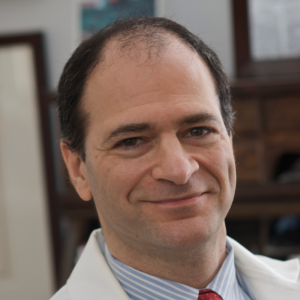Paul M Ridker, MD, MPH
Eugene Braunwald Professor of Medicine, Harvard Medical School
Director, Center for Cardiovascular Disease Prevention
Physician, Brigham and Women’s Hospital
pridker@bwh.harvard.edu

Over the past 25 years, the research group directed by Dr. Paul Ridker has been collaboratively responsible for elucidating the critical role of inflammation in the detection, prevention, and treatment of cardiovascular diseases. This work has proven the inflammation hypothesis of atherosclerosis, led to guideline endorsed use of inflammatory biomarkers in clinical practice, widely expanded the indications for statin therapy in prevention, and resulted in the development of several entirely novel therapeutics for both heart disease and cancer.
Best known for his pioneering population biology work on inflammatory biomarkers such as high-sensitivity CRP and interleukin-6 (1997), the first demonstration of the anti-inflammatory effects of statins (1998), the guideline changing JUPITER trial (2008), and ultimately through the CANTOS interleukin-1b inhibition trial (2017) and the CIRT low-dose methotrexate trial (2019), Dr. Ridker’s work has led to a fundamental shift in our understanding of atherosclerosis and to the first proof-of-principle that targeted anti-cytokine therapies can lower cardiovascular event rates in the absence of lipid lowering. Insights from his group that the magnitude of inflammation inhibition directly relates to the magnitude of clinical benefit has spawned a novel class of cardiovascular therapeutics and led to the clinical recognition that “residual inflammatory risk” is a separate and distinct entity from “residual cholesterol risk”. Moreover, in simultaneous work related to inflammation in the tumor microenvironment, Dr. Ridker demonstrated for the first time that interleukin-1b inhibition dramatically lowers lung cancer mortality (2017), work that has additionally opened an entirely novel approach to the treatment of inflammatory cancers.
While Dr. Ridker’s research efforts are primarily supported by RO1 grants from the National Institutes of Health, he has received additional career support from the Doris Duke Charitable Foundation, the Leducq Foundation, the Donald W Reynolds Foundation, and the American Heart Association from whom he has been the recipient of a Clinician Scientist Award (1992-197), an Established Investigator Award (1997-2002), and a Distinguished Scientist Award (2013). His work on inflammation, CRP, and atherothrombosis garnered recognition by Time magazine as one of America’s Ten Best Researchers in Science and Medicine (2001) and selection to the “Time 100” (2004). Dr. Ridker has additionally been the Trial Chairman OR Co-Chair of several multinational trials funding by the NHLBI or industry including PREVENT, PRINCE, Val-MARC, LANCET, JUPITER, SPIRE-1, SPIRE-2, CANTOS, CIRT, and PROMINENT. Dr. Ridker has served on multiple federal scientific review panels for United States Food and Drug Administration and the National Heart Lung and Blood Institute, including a 10-year term on the Board of External Experts.
The recipient of several honorary degrees and scientific prizes, Dr. Ridker’s most recent major international lectureships include the Distinguished Scientist Lecture of the American Heart Association (2018), the Braunwald Keynote Lecture of the American College of Cardiology (2019), the Distinguished Lectureship of ATVB (2019), the Keynote Opening Lecture for the European Atherosclerosis Society (2019), and the Honorary Attilio Maseri Lectureship for ATBV (2019).
According to the ISS Web of Science (September 2019), Dr. Ridker’s scientific publications have been cited more than 300,000 times (H-index > 220), placing him among the top 10 most influential medical investigators worldwide.
Dr. Ridker is listed as a co-inventor on patents held by the Brigham and Women’s Hospital that relate to the use of inflammatory biomarkers in the diagnosis and treatment of cardiovascular disease, diabetes, and cancer.
For the past 22 years, Dr. Ridker, along with Dr. Julie Buring, has served as Co-Principle Investigator of a continuously funded federal training grant in cardiovascular disease epidemiology and pathophysiology that has trained two generations of scientists.
MD: Harvard Medical School
MPH: Harvard School of Public Health
- Ridker PM. Anticytokine agents: Targeting interleukin signaling pathways for the treatment of atherothrombosis. Circ Res 2019;124:437-450.
- Ridker PM, Everett BM, Pradhan A, MacFadyen JG, Solomon DH, Zaharris E, Mam V, Hasan A, Rosenberg Y, Iturriaga E, Gupta M, Tsigoulis M, Verma S, Clearfield M, Libby P, Goldhaber SZ, Seagle R, Ofori C, Saklayen M, Butman S, Singh N, Le May M, Bertrand O, Johnston J, Paynter NP, Glynn RJ, Investigators C. Low-dose methotrexate for the prevention of atherosclerotic events. N Engl J Med 2019;380(8):752-62.
- Ridker PM, MacFadyen JG, Everett BM, Libby P, Thuren T, Glynn RJ. Relationship of c-reactive protein reduction to cardiovascular event reduction following treatment with canakinumab: A secondary analysis from the CANTOS randomised controlled trial. Lancet 2018; 391:319–28.
- Ridker PM, Everett BM, Thuren T, MacFadyen JG, Chang WH, Ballantyne C, Fonseca F, Nicolau J, Koenig W, Anker SD, Kastelein JJP, Cornel JH, Pais P, Pella D, Genest J, Cifkova R, Lorenzatti A, Forster T, Kobalava Z, Vida-Simiti L, Flather M, Shimokawa H, Ogawa H, Dellborg M, Rossi PRF, Troquay RPT, Libby P, Glynn RJ. Antiinflammatory therapy with canakinumab for atherosclerotic disease. N Engl J Med 2017;377:1119-1131.
- Ridker PM, MacFadyen JG, Thuren T, Everett BM, Libby P, Glynn RJ. Effect of interleukin-1beta inhibition with canakinumab on incident lung cancer in patients with atherosclerosis: exploratory results from a randomised, double-blind, placebo-controlled trial. Lancet 2017;390:1833-1842.